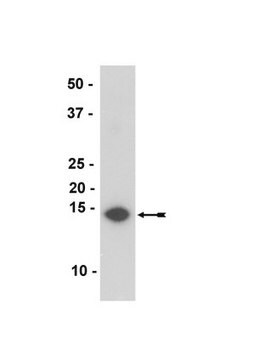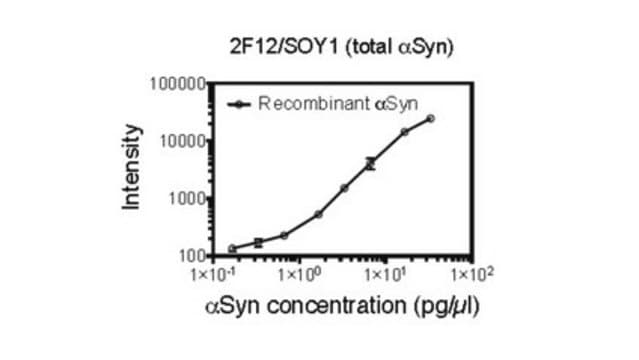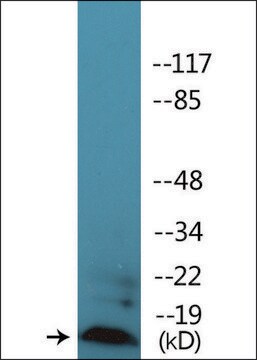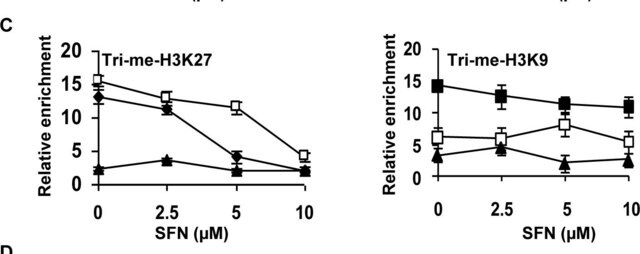36-008-C
Anti-alpha-Synuclein (aa 121-125) Antibody, clone Syn211 (Ascites Free)
clone Syn211, from mouse
Synonym(s):
Alpha-synuclein, Non-A beta component of AD amyloid, Non-A4 component of amyloid precursor, NACP
About This Item
Recommended Products
biological source
mouse
Quality Level
antibody form
purified immunoglobulin
antibody product type
primary antibodies
clone
Syn211, monoclonal
species reactivity
human
technique(s)
immunohistochemistry: suitable
western blot: suitable
isotype
IgG1κ
NCBI accession no.
UniProt accession no.
shipped in
wet ice
target post-translational modification
unmodified
Gene Information
human ... SNCA(6622)
General description
Immunogen
Application
Western Blotting Analysis: A representative lot detected alpha-Synuclein in Synucleinopathy brains (Guo, J.L., et al. (2013). Cell. 154:103-117).
Quality
Western Blotting Analysis: 1.0 µg/mL of this antibody detected alpha-Synuclein in 10 µg of human brain tissue lysate.
Target description
Physical form
Storage and Stability
Other Notes
Not finding the right product?
Try our Product Selector Tool.
recommended
Storage Class
12 - Non Combustible Liquids
wgk_germany
WGK 1
flash_point_f
Not applicable
flash_point_c
Not applicable
Certificates of Analysis (COA)
Search for Certificates of Analysis (COA) by entering the products Lot/Batch Number. Lot and Batch Numbers can be found on a product’s label following the words ‘Lot’ or ‘Batch’.
Already Own This Product?
Find documentation for the products that you have recently purchased in the Document Library.
Our team of scientists has experience in all areas of research including Life Science, Material Science, Chemical Synthesis, Chromatography, Analytical and many others.
Contact Technical Service








